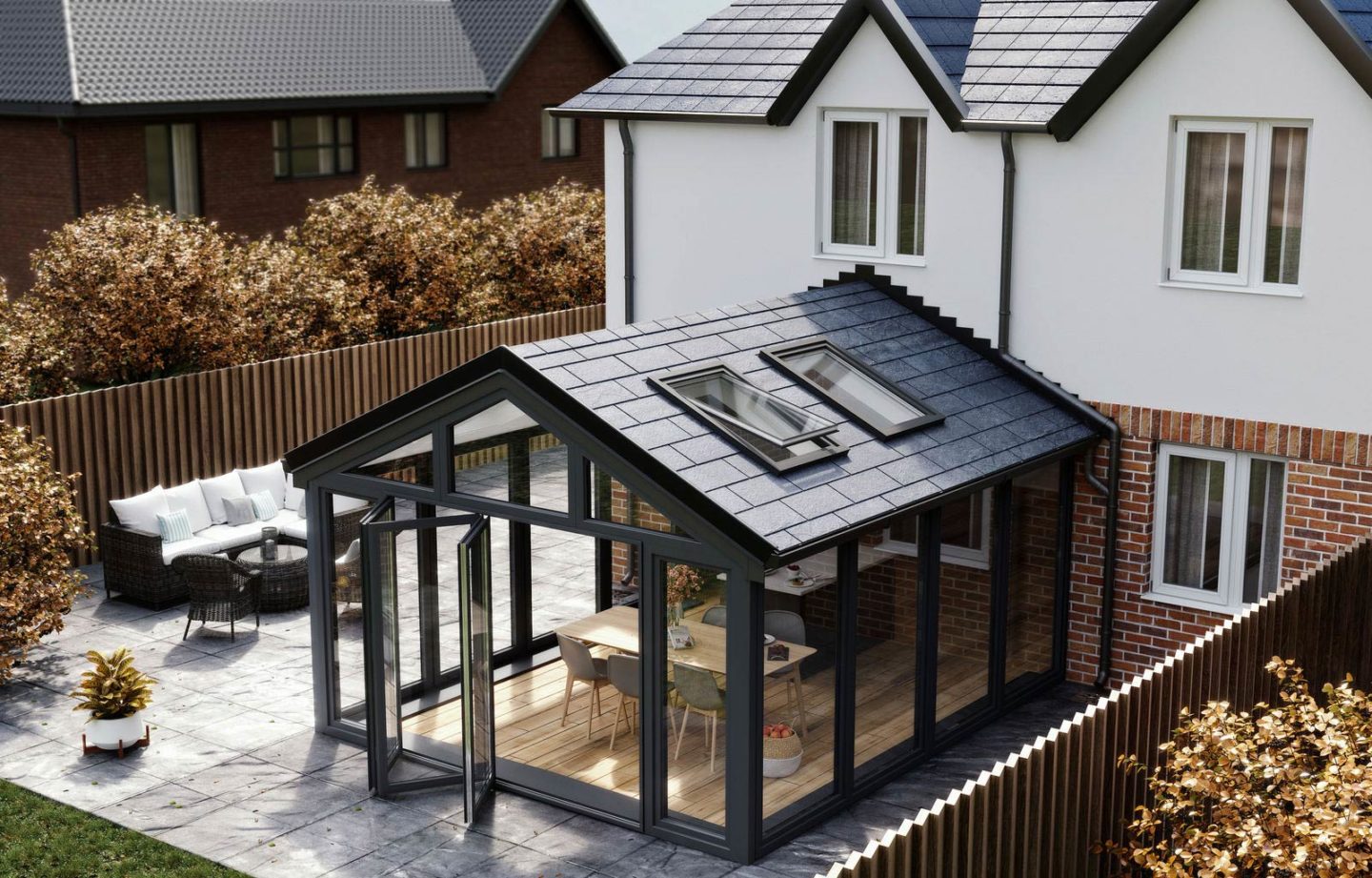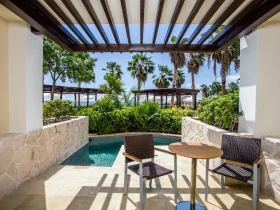Whether you are looking to revitalize your conservatory or add value to your home, a replacement roof is the perfect solution.
Unlike polycarbonate or glass roofs, solid Replacement conservatory roof regulate the temperature more effectively and make your conservatory a useable space all year round. Our Livinroof and Ultraroof systems are both solid conservatory roof solutions that are built to meet Building Regulations.
Solid Tiled Roof
If your existing conservatory is showing signs of aging, a solid tiled roof replacement may be the answer. These modern roofs are lightweight and insulated meaning they stay warmer in the winter and cooler in the summer while also reducing noise from outside.
A bespoke tailored solid roof will offer you all year-round insulation meaning your conservatory will be a comfortable space to spend time in even on the hottest or coldest of days. The high standard of insulation means your new roof will be a thermally efficient room with reduced energy bills.
A good quality national installer will be able to help you choose an insulated solid tiled roof for your existing conservatory. Look for an LABC Registered Detail certification as this will show they have worked with your local authority to create a design that complies with building regulations. If this isn’t available you could always choose to upgrade the boarding on your existing frame to improve strength and eliminate the need for tie bars.
Glass Roof
If you have a glass conservatory that is difficult to use due to unbearable heat in the summer and inescapable cold in the winter, a replacement roof can make all the difference. New conservatory roofs are available that will keep your living space comfortable in all weathers – including the Pilkington Activ self-cleaning glass roof that keeps your conservatory looking great for longer.
It is important to research your options thoroughly before selecting the right roof for your conservatory, and always work with a reputable company. Ideally, you should look for a tradesman that is a member of a recognised industry body such as The Glass & Glazing Federation or Double Glazing & Conservatory Onbudsman Scheme. They should also have a good trading history with previous customers and should offer free, no-obligation quotations. The best option for older glass conservatories is multiwall or solid polycarbonate because they use widely available glazing bars and are relatively cheap.
Aluminum Roof
For a modern conservatory roof that looks like part of the house, choose an aluminum roof. These lightweight options reflect heat so the room won’t become too hot, and come in a range of colours to suit your style.
A solid conservatory roof can make your room a year-round space, and a much more functional addition to your home. It can regulate temperature better, and let in a lot more natural light too.
Adding a solid conservatory roof will require some structural changes to your existing structure, so be sure to get in touch with a reputable company that specialises in this type of work. They will be able to advise you on what your options are, and which is the best choice for your home. This will help you avoid niggling issues that can occur over time, and may be a sign your conservatory roof is beginning to deteriorate. For example, leaks and condensation can develop over time, especially if they are persistent.
Standing Seam Roof
A standing seam metal roof system from MBCI is an elegant, durable, and visually appealing option for your conservatory. Also known as concealed fastener metal roofing, it is made up of flat panels running from the ridge to the eaves that are connected by clips or the roof decking material below the legs. This design conceals the fasteners and protects them from the elements, making this type of metal roof much more weather-tight than traditional metal roofing.
These roofing panels can be attached using a fastening flange that snaps into place and covers the clip or rafter. However, this attachment style limits the panel’s ability to expand and contract as it undergoes thermal movement.
Another problem is that the exposed fastener heads corrode and can lead to leaks. Finally, these types of metal roofs can be noisy when it rains. This is a result of the fasteners scraping against the metal panels when they move during thermal expansion and contraction.








Leave a Reply